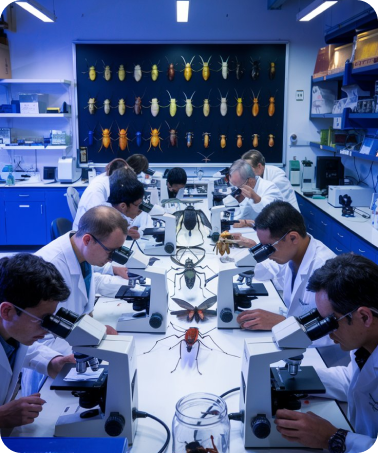This division understands the importance of entomology as a fundamental element of public health. It emphasizes the study of insects and their influence on human health. This field offers much-needed insights by analyzing how insect-borne diseases spread and categorizing the highly susceptible populations. It also evaluates the biological, environmental, and social factors that are responsible for various vector-borne disease transmissions.
Once they have all these data, they implement prevention strategies, craft public health policies, and improve overall well-being. The division focuses on the significance of core entomological principles—such as detecting disease vectors, understanding their life cycles, and measuring how they impact public health. Their data-based solutions help to address both ongoing and emerging public health challenges.

Lorem Ipsum
Justo Venenatis
Position
Justo Venenatis
Position
Justo Venenatis
Position



Sign up to get updates on courses